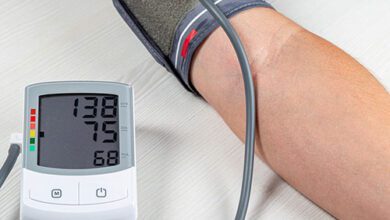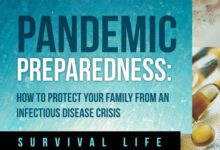Here is the only trick to limit the hangover

New Year’s Eve is approaching, and with it probably the hangover, the poison of the mornings following a drunken evening. Here’s what to do before, during and after to avoid being (too) muddy to start the year.
If you’ve planned to party for New Year’s Eve, you may wake up on January 1st with a severe headache, unpleasant nausea or heightened sensitivity to light. You then remember having drunk the equivalent of the Seine in champagne the previous night and you quickly conclude that… you are simply hungover.
To avoid living in a disaster scenario, the first principle, on New Year’s Eve, is… to drink in moderation, of course. But also to take a water bottle with you to also drink water, throughout the evening. This will allow you to water the evening without suffering too much the next day.
However, if this basic principle seems difficult to apply and you think you’re drinking more than you should, know that there are also other preventive tips to avoid having a too difficult awakening the day after New Year’s Eve. Be careful though, remember that alcohol abuse is dangerous for your health and if you have to drive, limit yourself to one drink or have someone drive you home.
Hangover: what is it?
Headache, dry and pasty mouth, nausea, desire to vomit are the unpleasant consequences of an excess of alcohol. But what action do they result from?
The main reason is called acetaldehyde. This substance, thirty times more toxic than alcohol, comes from the transformation of alcohol in our metabolism. During a complex process, the alcohol becomes in fact acetaldehyde, then acetate to complete its elimination in carbon dioxide plus water.
The other explanation for a hangover comes from methanol, which is present in alcohol. This element makes it possible to classify alcohols according to their capacity to give more or less the “hangover”.
Brandy, red wine, rum, white wine, gin and vodka can thus be classified in descending order of methanol content. A “boiled” with vodka should therefore be less painful than one with brandy.
Remember that methanol can be used as fuel by some racing cars! Imagine the amount of work your liver and kidneys have to do to eliminate these substances.
What to do BEFORE? 5 tips to avoid a hangover
Remember to stay hydrated, drink at least 1 liter of water. She will be your main ally of the evening! Better, if you can decorate your consumption with alcohol of fruit juice, you will optimize your chances of success. Indeed, fruits contain fructose, a natural sugar that facilitates the transformation and therefore the elimination of alcohol.
Along the same lines, consume honey. The latter belongs to the foods that have the most fructose. The simple fact of swallowing a spoonful or two of honey at the end of a meal will relieve your battered stomach and restore your energy.
On the gastric level, some plant extracts, such as artichoke or boldo (leaf from a shrub in Chile) will help you avoid painful heartburn.
Finally, before going to bed, do not hesitate to take 1 g of paracetamol. If you just take your pill when you wake up, it will be less effective.
As far as historical remedies are concerned, such as a tablespoon of olive oil, a large glass of squeezed lemon, milk or boiled water with garlic, bay leaf, sage, egg yolk and even bread, no effect positive has not yet been scientifically proven.
What to do AFTER?
With all these precautions, you should not be prone to a hangover. However, you will never be completely safe! So it’s time to talk about anti-hangover remedies.
Drink water. Lots of water ! Know this: although alcohol is liquid, it dehydrates you. Particularly diuretic, it can thus push your body to eliminate several liters of water in a few hours (and a few glasses). Desperate, your body will therefore draw it wherever it can find it, and in particular in your brain. Look no further for the origin of your headaches, even if your liver, by transforming alcohol into a toxic compound (acetaldehyde), does not help matters.
Beware of effervescent aspirin! This medicine can make your gastritis (inflammation of the stomach) worse and even increase gastroesophageal bleeding. So nothing good.
Against indigestion, trust the traditional and very effective betaine citrate. It optimizes gastrointestinal motricity and digestive secretions, often absent after rich meals. Last advice, organize yourself a day after with a light meal like broth and a good restful sleep.
How do we get rid of alcohol?
The liver, through several enzymes, has a major role in the detoxification of alcohol (the action of suppressing the harmful effects): know that it takes about 1h30 to get rid of the equivalent of a glass. For their part, the kidneys are responsible for eliminating this toxic substance using mainly water. This is why, when you drink more than necessary, you are subject to an increase in your diuresis (the volume of urine) and to fairly strong dehydration, hence thirst and headaches. Nausea and vomiting, on the other hand, come from alcoholic gastritis, which is a direct toxic effect of alcohol on the stomach.
Finally, know that your propensity to tolerate alcohol depends on your usual consumption, your weight and… your sex since women are 2 to 3 times more sensitive than men to the effects of alcohol.







